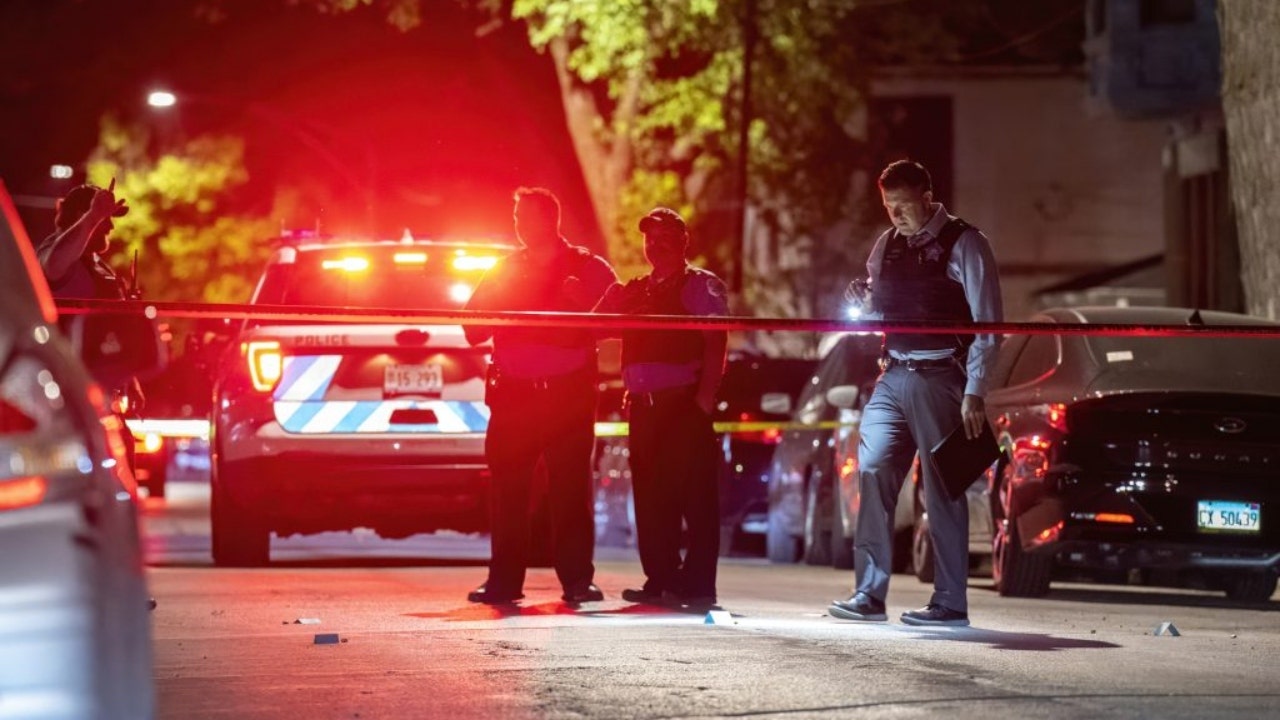Like I've been saying for 2 years now, you can't ignore inner city violence. It is a cancer. Well the cancer is spreading. Last weekend multiple mass shootings in multiple cities. Defund the Police. Black Lives Matter. Ban assault weapons. Release the prisoners. Ignore the drug/gang killings. And here we are.,
No, you cannot ignore inner city violence. Neither can you ignore violence in rural areas or small towns or suburbs. We are a violent nation which has more guns than people. We worship guns more than God. We defend the right to bear arms more than we defend the right to life. We have been doing so for a very long time. But with the added stress of the pandemic and isolation, it has worsened, and we have decided that guns are going to save us.
I found a great article on inner city violence which actually has some suggestions as to how to address the issue - by getting to the core issues. I've cut and pasted parts of it since it was pretty long.
'We Should Have a Handle on This by Now.' As Inner-City Neighborhoods See a Surge in Gun Violence, These Are the Changes Community Leaders Say They Need by Carl Day and Van Jones
“
In inner-city communities, you often see high levels of poverty and a lack of economic opportunity for people who have been systematically disenfranchised by the criminal justice system,” says Josh Horwitz, Executive Director of the Coalition to Stop Gun Violence. “
When you add the easy access to firearms, that’s when you have this grinding daily gun violence.”
Rather than seeing gun violence as a crime problem,
Cure Violence addresses it like a health crisis, using “violence interrupters” who work to mediate issues in the community between individuals who would otherwise be considered at risk of resorting to violence.
Activists across the U.S. are calling for social work and community-led programs that use “violence interrupters” to be properly funded in a city’s budget and supported as an example of successful de-escalation and de-policing.
Under Mayor Bowser’s public safety agenda, the Office of Neighborhood Safety and Engagement (ONSE) approaches community safety in a similar fashion to Cure Violence, using “nonviolent interrupters” to curtail and de-escalate risk factors in the communities.
But Bowser also notes that the District — which requires background checks along with a licensing process for firearm sales, and imposes strict regulations and rules on gun dealers —
is surrounded by states with far less stringent gun laws. This means it is often all too easy for weapons to find their way into the nation’s capital across porous state borders.
In Virginia, a state which borders D.C., gun dealers do not need a state license to sell. Background checks are not required for the transfer of weapons between individuals, while gun owners also do not have to report if a gun is stolen or misplaced.
“If I had one thing to ask our federal partners, it is ‘
how do we prevent the free flow of illegal guns into urban areas?’” Mayor Bowser said. (The governor’s office in Virginia did not return TIME’s request for comment.)
During a CNN interview on Sunday, Chicago Mayor Lori Lightfoot echoed Bowser’s point. “
Our gun problem is related to the fact that we have too many illegal guns in our streets — 60% of which come from states outside of Illinois,” Lightfoot said. “We are being inundated with guns from states that have virtually no gun control, no background checks, no ban on assault weapons.”
James Aye, who runs Yeah Philly, a nonprofit organization in Philadelphia that supports teens impacted by gun violence, says the city’s
police put too much focus on finding weapons and arresting people, without addressing the root causes of gun violence. The city’s police department “doesn’t know how to engage with people,” Aye says. “They’ll do these single-day events [like charity work or neighborhood gatherings], but there needs to be more consistency.”
But Daniel Webster, a professor at John Hopkins who specializes in firearm policy and the prevention of gun violence, notes that
most police departments are just not built to deal with the structural disadvantages many communities struggling with gun violence face. “That’s not what [the police] do. They don’t build education, they don’t build jobs, they are not there making sure that people who are leaving incarceration have services that help them get an education and have other options,” Webster says. “They don’t control the environment, they just police it.”
Activists agree that crime in these communities stems largely from endemic socioeconomic disadvantages. Only when there is a consistent effort to address these problems, crime rates will fall, they believe.
“Until structural issues are addressed — people having access to basic needs like affordable food, economic opportunities, housing opportunities — the violence isn’t really going to change,” says Kendra Vandewater, a member of the Anti-Violence Partnership of Philadelphia and the co-founder of Yeah Philly. “
The interventions that we have for violence don’t address people’s immediate needs. It’s very reactive.”
:quality(70)/cloudfront-us-east-1.images.arcpublishing.com/cmg/6OFBMRUB6ZHAXLYSTUVUFUX5MA.png)